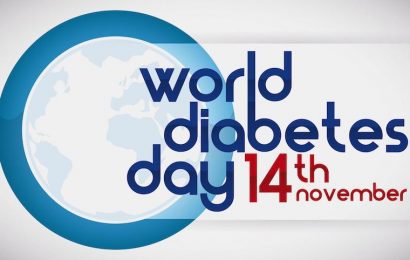Throughout your life, and especially throughout your time with diabetes, you’ve most likely been told to watch your diet — to avoid excess sugar, fat, alcohol, refined carbohydrates, and processed foods. Chances are, this was sound advice, based on scientific studies that have associated certain eating patterns with diabetes, heart disease, hypertension, and other medical conditions. But there may be a problem common to many dietary studies conducted up to this point: not properly accounting for different effects in different age groups. According to a recently published study, there may be a point in life after which good nutrition doesn’t do much good.
Published last month in the Journal of Nutrition, Health and Aging, the study followed 449 Pennsylvania senior citizens whose average age was 76.5 years. According to an article in Penn State Live, participants were followed for a total of five years. During the first 10 months, researchers would call periodically — four to five times throughout the study — and ask what the person had eaten in the last 24 hours. All participants were then placed in one of three categories based on their responses: the “sweets and dairy” category, for those who obtained the largest share of calories in their diet from baked goods, sweetened coffee and tea, and dairy products; the “Western” diet category, for those with a high intake of bread, eggs, fried food, alcohol, and soft drinks; and the “health-conscious” category, for those whose diets featured pasta or rice, fruits and vegetables, poultry, and nuts.
Because this study was part of an ongoing collaborative effort between researchers and a health-care network, the researchers had easy access to participants’ medical records. At the end of the five-year study period, they made note of who had developed diabetes, cardiovascular disease, hypertension, or metabolic syndrome. When comparing this data with participants’ dietary categories, they found no relationship between dietary patterns and diabetes, cardiovascular disease, metabolic syndrome, or death from all causes. Only hypertension was linked to dietary patterns, specifically the “sweets and dairy” category.
There are many limitations to this study, the most obvious of which may be that researchers scored participants’ diets based on only four or five days’ worth of data in the first 10 months of a five-year period. Participants’ diets might have changed over this period, and their initial accounts might not have been fully reliable. But according to Penn State researcher Gordon Jensen, as quoted in the Penn State Live article, most people maintain similar eating habits over a five-year period — and the age of this study’s participants doesn’t suggest that they’d be any more likely to develop a new routine. So it seems reasonable to conclude that the study’s findings have merit.
How, then, could poor eating habits have no effect on the development of chronic diseases? One explanation could be that if someone reaches an advanced age without having developed Type 2 diabetes or heart disease, it is likely that he is genetically predisposed not to get that disease, regardless of eating habits. Assuming that most participants maintained similar eating habits throughout their lives, not just during the five-year study period, the study would seem to support the importance of genes rather than the idea that there is a “finish line” age after which dietary habits no longer affect someone’s health.
Do you believe that healthy eating habits are important at any age, or is there a point after which they become less important? Have you changed your diet at an advanced age and seen benefits? Should there be different dietary considerations depending on whether you already have diabetes (or heart disease, or hypertension) or are trying to prevent it? Should people in their late 70’s be worried about getting a chronic illness, or does this mind-set reflect a denial of the reality of aging? Leave a comment below!




